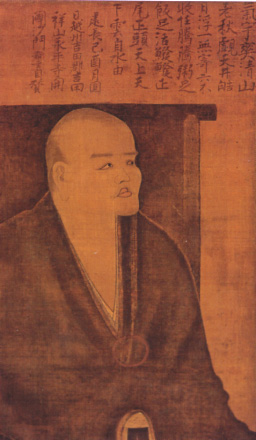Eihei Dogen Frases famosas
Just practice good, do good for others, without thinking of making yourself known so that you may gain reward. Really bring benefit to others, gaining nothing for yourself. This is the primary requisite for breaking free of attachments to the Self.
Shobogenzo Zuimonki Things Overheard at the Treasury of the Eye of the True Dharma, III, 3 - Coleção de ensinamentos de Dogen escritos por Ejō entre 1236 e 1238, traduzidos para o inglês por Reiho Masunaga. (Honolulu: University of Hawaii Press; New Ed edition, June 1975)
Eihei Dogen: Frases em inglês
“A fool sees himself as another, but a wise man sees others as himself.”
Fonte: How to Cook Your Life: From the Zen Kitchen to Enlightenment
As translated in The Zen Poetry of Dōgen : Verses from the Mountain of Eternal Peace (1997) by Steven Heine, p. 61
“People who truly follow the Way would do well to conceal the fact that they are Buddhists.”
V, 3
Shobogenzo Zuimonki (1238)
"Shobogenzo: The Treasure House of the Eye of the True Teaching" http://www.shastaabbey.org/pdf/shobo/029gyoji.pdf (2007) by Rev. Hubert Nearman, O.B.C. Chapter 29, p. 421
Ocean Mudra Samadhi (1242)
"Shoaku makusa : Not Doing Wrong Action" as translated by Anzan Hoshin roshi and Yasuda Joshu Dainen roshi (2007)
“When other sects speak well of Zen, the first thing that they praise is its poverty.”
III, 7
Shobogenzo Zuimonki (1238)
“To study Buddhism is to study ourselves. To study ourselves is to forget ourselves.”
Fonte: As quoted in Exploring the Inner World : A Guidebook for Personal Growth and Renewal (1974) by Tolbert McCarroll, p. 6
III, 14
Shobogenzo Zuimonki (1238)
"Shoaku makusa : Not Doing Wrong Action" http://wwzc.org/dharma-text/shoaku-makusa-not-doing-wrong-action as translated by Anzan Hoshin roshi and Yasuda Joshu Dainen roshi (2007)
“Coming, going, the waterbirds
don't leave a trace
don't follow a path.”
As quoted in The Enlightened Heart : An Anthology of Sacred Poetry (1989) by Stephen Mitchell, p. 50
